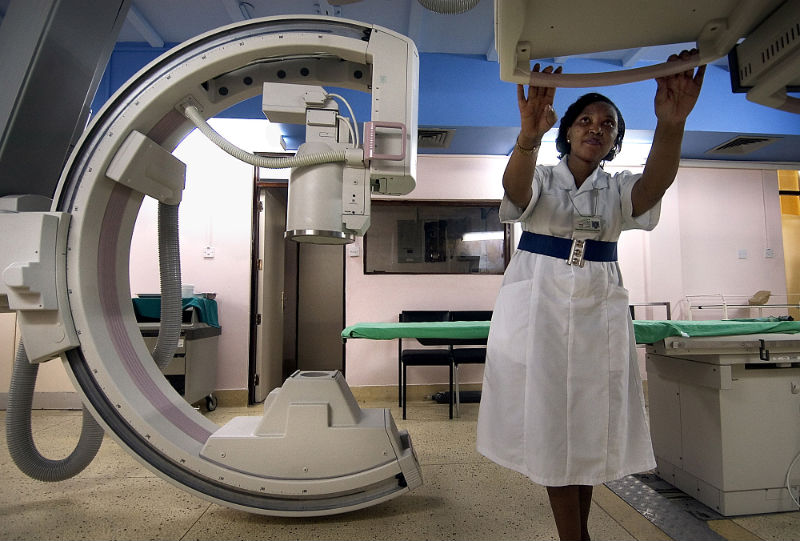Send to a friend
The details you provide on this page will not be used to send unsolicited email, and will not be sold to a 3rd party. See privacy policy.
[CAPE TOWN] Plans are under way to establish national and regional centres of excellence to perform essential heart surgery and train heart-related specialists in Africa.
Doctors with special training in heart diseases met last month (4-6 March) in Addis Ababa, Ethiopia, to discuss how to implement the plan, which includes priority areas to control rheumatic heart disease (RHD), an acquired heart disease that commonly affect young women.
“If African countries could consider coming together regionally, it will help us build these centres of excellence.”
Bongani Mayosi, Pan-African Society of Cardiology (PASCAR)
The experts hope to enhance access to reproductive health services to women with the disease and forge international partnerships to help roll out interventions.
Bongani Mayosi, a cardiology professor at the University of Cape Town, South Africa, and the head of Pan-African Society of Cardiology (PASCAR), said the plan was developed by PASCAR in consultation with the World Health Organisation and approved by the African Union.
According to Mayosi, RHD accounts for 1.4 million deaths worldwide a year, with most deaths occurring in low- and middle-income countries.
Mayosi adds that establishment of the centres of excellence for cardiologists in Africa has become necessary after an assessment of patients with RHD in 12 African countries —
including Egypt, Ethiopia, Nigeria, Mozambique and South Africa — found the neglect of the disease.
The centres aim to eliminate acute rheumatic fever (ARF) and rheumatic heart disease (RHD) on the continent.
Mayosi says funding needed to implement the plan are still being worked out.
In a study published in the Cardiovascular Journal of Africa on 12 January, PASCAR identified the need to create prospective disease registers at surveillance sites in Africa, measuring the disease burden and tracking of progress towards reducing RHD deaths by 25 per cent by the year 2025.
Mayosi, a co-author of the study, explains that there is need for decentralising technical expertise and technology for diagnosing and managing the condition.
“If African countries could consider coming together regionally, it will help us build these centres of excellence, which will carry out research on diseases and find new vaccines,” Mayosi tells SciDev.Net, adding that the centres could be set up along regional economic blocs to aid funding such institutions.
Liesl Zühlke, a paediatric cardiologist at the South Africa-based Red Cross War Memorial Children's Hospital and president of the Paediatric Cardiac Society of South Africa, says the selected priority areas reflect the major care gaps in the diagnosis and treatment of rheumatic heart disease, while addressing the most important scientific and technical concerns.“This initiative is one which helps clinicians dealing with this disease on a daily basis and gives a real sense of hope that RHD could be eradicated in Africa,” Zühlke tells SciDev.Net.
This piece was produced by SciDev.Net’s Sub-Saharan Africa English desk.
References
David Watkins and others Seven key actions to eradicate rheumatic heart disease in Africa: the Addis Ababa communiqué (Cardiovascular Journal of Africa, 12 January 2016














